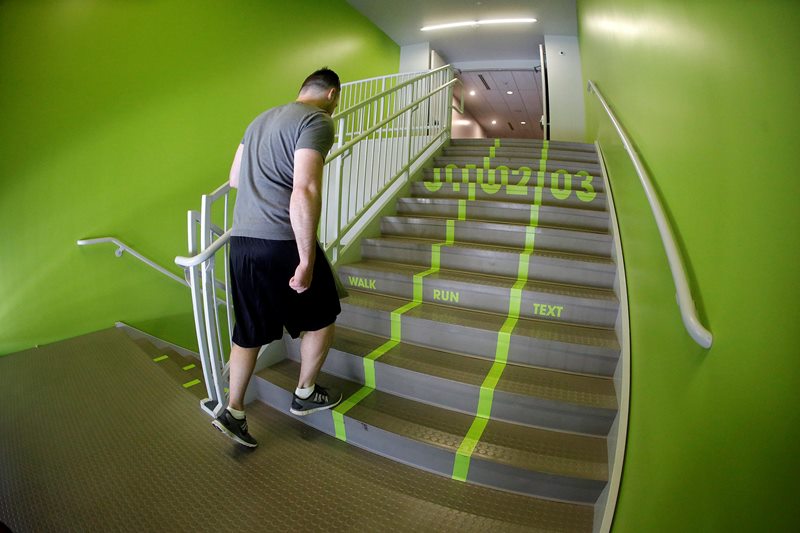It’s that time of the year when people are trying to keep their new year’s resolution to be active.

But for more than 20 per cent of the population, there is a major barrier to physical activity – mental health.
“I cannot remember a single day in my life that I didn’t live with this ghost,” Kaola Alison Baird told Global News.
The ghost Baird speaks about is anxiety and chronic depression, something she has suffered from since she was a child. To help manage her symptoms she knows exercise is important.
But for many who live with a mental illness, the idea of going to a gym, joining a team, or taking a class provokes feelings of anxiety.
And that’s the problem.
READ MORE: Young Minds: Millennials facing increased rates of stress compared to other generations
Why exercise is important
For people with a mental illness, research suggests that physical activity is key in recovery and managing symptoms. For those with severe illness, they are already at a higher risk for poor health and a higher rate of disease. The benefits of exercise include physical benefits and cognitive functioning, add to that list increased self-esteem, building stronger social skills and reducing isolation.
What makes Baird remarkable is that she has overcome her challenges and not only exercises regularly but she is also an instructor. She knows how exercise helps her and other participants.
“It’s medicine in itself. You can have all the therapy, you can have all the counselling,” Baird told Global News. “So when you move your body – when you stretch, when you pull and push your muscles, you’re not just building muscle and losing weight, you’re affecting your nervous system, your respiratory system, and that is vital.”
Breaking down barriers
But there are barriers. Barriers like the illness itself, discrimination, stigma, medication and even policies at a gym keep people away.
“The organization doesn’t allow flexibility, if all of their gym classes are in the morning and somebody can’t get out of bed, then that’s not really flexible for them,” Scott Mitchell, director with the Canadian Mental Health Association, Ontario Division, who specializes in putting research into action, told Global News. “It doesn’t really meet their needs so consider being more flexible,” said Mitchell.
READ MORE: Young Minds: Growing research backing nutrition’s role in mental health
Considering mental illness is often invisible – sport organizations, gyms and recreation centres don’t know they have created barriers. Some people may fear a new space, be intimated by a large group class or just need extra time to ease into a class or situation.
Canadian-designed solution that can make a difference
The Canadian Mental Health Association (CMHA) Ontario launched a free online training program, called Enabling Minds, to help those who work in the fields of fitness, sport and recreation. The 45-minute training program teaches frontline workers how to recognize a potential barrier faced by people with mental health issues, possible solutions and to understand how important exercise is for all.
The Miles Nadal Jewish Community Centre (MNjcc) in downtown Toronto is a busy place. It offers 90 fitness classes a week as well as swimming, education and wellness.
Even though the MNjcc is a leader in the field of inclusion and accessibility, it enrolled its staff in the Enabling Minds program and as a result adopted some new ideas, including a quick introduction at the beginning of its fitness classes.
READ MORE: Light therapy benefits for non-seasonal depression as well: study
“(Instructors) say something at the beginning of the class that marks it as a safe space, they say, ‘If you have any needs or any concerns, you can talk to me in class or after class. You can send me an email. However you want to come forward, we’re here and we’re listening,’” Liviya Mendelsohn, manager of accessibility and inclusion, told Global News.
Mendelsohn says the MNjcc is also looking at how it can be more flexible with memberships (mentally disabled people may need to dropout for a bit and then rejoin) as well as trying to remove financial barriers.
Baird said when she was honest with staff and instructors about what she needed the results were beneficial. As an instructor she lets everyone know they can come to her, and often that is the most important thing – just starting a conversation.
“I don’t think you can overstate how important it is to just talk about it. To get it out, and to let people know it’s okay,” Baird told Global News.
WATCH BELOW: Learn more about mental health and physical activity from the CMHA, Ontario




Comments